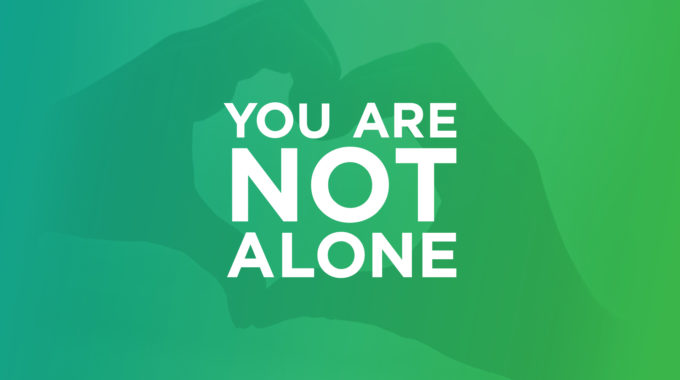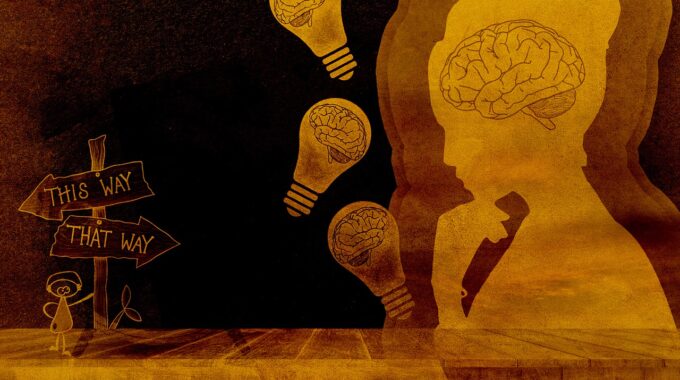Understanding the Impact of Leadership Policies on Mental Health and Neurodiversity in the Workplace In…

You Are Not Alone
Mental Health Awareness Month
Personal note: As a person who has been treated for depression for a few decades, I understand how mental health can be a struggle during unusual times – such as a pandemic! This article reflects my experiences as well as advice from the experts. Had the month not been so hard, this post would have been published sooner. Thank you for reading.
Depression Reflection
During the first bad episode I had with depression, I simply went to bed for three months. My children were young at the time and I told them, “Mommy has a sleeping sickness.” One of my best friends said, “We all get depressed. Snap out of it!” With counseling and medication, I worked my way out of it.
I’m not a big believer in pills so once every five years or so, I wean my way off my medication. My adult children usually notice first. “Mom – did you stop taking your pills?” My main symptom is that I get super ornery and impatient. I also lose the ability to make decisions. Motivation is out the window.
 This pandemic has been really hard. At my zoom book club meeting while we were waiting for everyone to get online, we were sharing our various self-isolation stories. My fellow book clubbers spoke of cleaning out their garages, re-organizing closets, painting rooms and taking up new hobbies. I did not mention that I haven’t folded my laundry for three months, that I often eat a bowl of cereal for dinner or that washing my hair is a major accomplishment. I didn’t share how terrible it was when one of my best friends died and there was no funeral to attend. After we discussed our book, I mentioned that not everyone sees this pandemic as a chance to hit their To Do lists. Some people, like me, struggle. They then offered help to “fix” my mood. Go for a walk. Eat healthy. Talk on the phone. Get a dog. Good ideas all.
This pandemic has been really hard. At my zoom book club meeting while we were waiting for everyone to get online, we were sharing our various self-isolation stories. My fellow book clubbers spoke of cleaning out their garages, re-organizing closets, painting rooms and taking up new hobbies. I did not mention that I haven’t folded my laundry for three months, that I often eat a bowl of cereal for dinner or that washing my hair is a major accomplishment. I didn’t share how terrible it was when one of my best friends died and there was no funeral to attend. After we discussed our book, I mentioned that not everyone sees this pandemic as a chance to hit their To Do lists. Some people, like me, struggle. They then offered help to “fix” my mood. Go for a walk. Eat healthy. Talk on the phone. Get a dog. Good ideas all.
Here’s what has worked for me:
- Calling at least three people per day to check in. I call my parents (aged 90 and 92), a few friends, my sister and my adult children.
- Giving myself permission to read a book. Books are my refuge. I rotate fiction and non-fiction.
- Keep the bird-feeders full. They’re so entertaining!
- Minimize the news. It’s too much. I check in during the morning and then avoid it for the rest of the day.
- Write in my journal. Gratitude lists are very helpful.
Depression Facts
My great grandmother spent the last 20 years of her life lying in bed. In the 1930s they called it “nerves.” A grandfather killed himself in the 1950s. My nephew committed suicide in 2000. A niece attempted suicide more than once. A colleague’s son committed suicide in the fall of 2019. Suicide is a permanent solution to a temporary condition.
Here’s the key facts from the World Health Organization:
- Depression is a common mental disorder. Globally, more than 264 million people of all ages suffer from depression.
- Depression is a leading cause of disability worldwide and is a major contributor to the overall global burden of disease.
- More women are affected by depression than men.
- Depression can lead to suicide.
- There are effective psychological and pharmacological treatments for moderate and severe depression.
Mental Illness at Work
If you have a mental health condition, you’re not alone. One in five U.S. adults experiences some form of mental illness in any given year. One in every 25 adults is living with a serious mental health condition such as schizophrenia, bipolar disorder or long-term recurring major depression.
In the Spectra Diversity Inclusion Assessment, we request that participants self-identify if they are disabled in any way. One of those “invisible” disabilities is mental illness. Our data confirms that of the National Alliance on Mental Illness (NAMI). Here are their recommendations to protect yourself from discrimination due to a mental illness:
The Americans with Disabilities Act (ADA) is a federal law that prohibits discrimination against job applicants and employees with disabilities. This law applies to private employers with more than 15 employees and state and local government employers. To qualify for protections under the ADA, the law states that you must be able to show:
That you have a disability that substantially impairs one or more major life activities. This means that you must be able to show that you have a condition that, if left untreated, interferes with daily or work activities such as concentrating, communicating or regulating emotions.
That you are able to perform the essential functions of your job with or without reasonable accommodations. In other words, you must be able to show that you can complete the important tasks or core duties of any job that you apply for.
The Rehabilitation Act of 1973 (Rehab Act) is a federal law, similar to the ADA, that applies to any agency or group that receives federal funding, including public schools, universities and even some private schools. This law protects federal government workers and employees at any of these agencies from disability discrimination. Many states also have laws that protect employees from discrimination in the workplace.
NAMI has also released a COVID-19 Resource and Information Guide which is helpful for both those with mental illness, and their families and loved ones.
Gratitude
In Spectra’s diversity and inclusion training Facilitation Kit, we teach how gratitude can help you re-wire your brain. It’s the neuroplasticity that allows us to learn new ways of believing and behaving. Here is an excerpt from my gratitude list. I’m grateful for:
- Two elderly parents who are alive and in relatively good health
- Two adult children who I would be proud to call friends
- A business that helps to improve the world and make it a more diverse and inclusive place
- Wonderful colleagues that I respect and trust
- All of you who took the time to read this post.
 Chris Jones is Spectra Diversity’s Founding Partner and CEO
Chris Jones is Spectra Diversity’s Founding Partner and CEO



